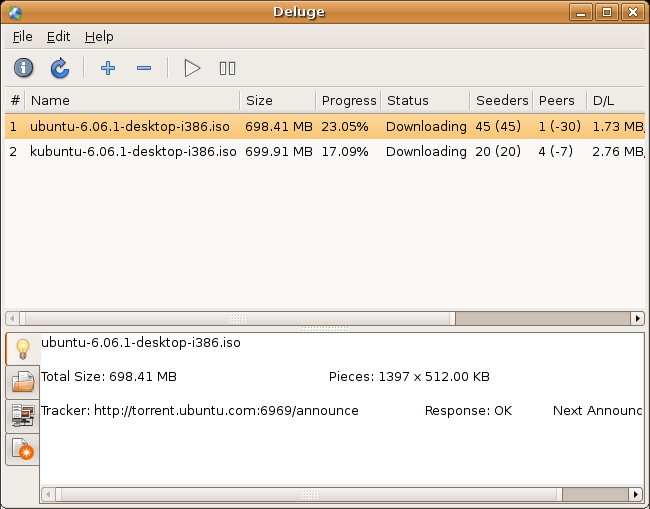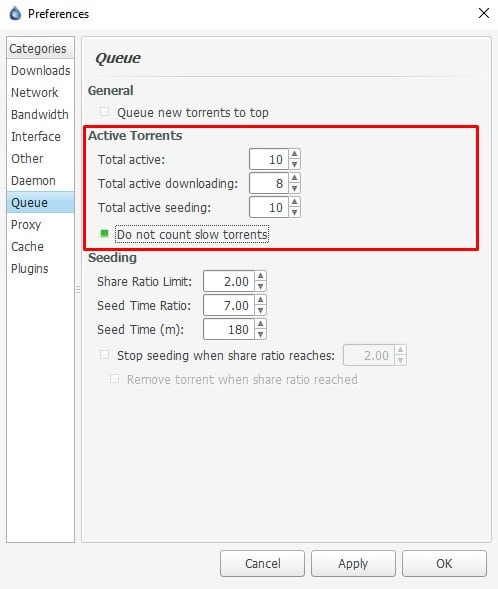

Preferences: Bandwidth Global Settings Maximum Connections

To see the results in KB/s (which is what deluge's preferences uses): by default will give you results in Mbps (Mb/s). You also should run the test a few times, hours or days apart, to make sure your initial results were accurate. It's best to do this with all other applications, including Deluge, closed. If you don't set up your uploading setting properly, you will be forever choked on your downloads. To give them a decent chance of getting a complete piece to upload, new connections are three times as likely to start as the current optimistic unchoke as anywhere else in the rotation. If a downloader has a complete file, it uses its upload rate rather than its download rate to decide who to unchoke.įor optimistic unchoking, at any one time there is a single peer which is unchoked regardless of it's upload rate (if interested, it counts as one of the four allowed downloaders.) Which peer is optimistically unchoked rotates every 30 seconds. Peers which have a better upload rate but aren't interested get unchoked and if they become interested the worst uploader gets choked. It does reciprocation and number of uploads capping by unchoking the four peers which it has the best download rates from and are interested. The currently deployed choking algorithm avoids fibrillation by only changing who's choked once every ten seconds. Finally, it should try out unused connections once in a while to find out if they might be better than the currently used ones, known as optimistic unchoking. It should reciprocate to peers who let it download.

It should avoid choking and unchoking quickly, known as 'fibrillation'. It should cap the number of simultaneous uploads for good TCP performance. There are several criteria a good choking algorithm should meet. Also, choking lets each peer use a tit-for-tat-ish algorithm to ensure that they get a consistent download rate. TCP congestion control behaves very poorly when sending over many connections at once. That's built into the bittorrent protocol, and works through what is known as "choking."Ĭhoking is done for several reasons. The most important thing to remember is: The speed of your downloads is determined by the speed of your uploads. They are intended to give users more guidance than the settings recommended in the FAQ, but are by no means definitive.

Thin-client refers to a computer (software or hardware) that controls a bigger one located in a remote place.ĭeluge can have a server-client mode of operation. Deluge only supports Windows, Mac, and Linux, but you can still control a Deluge server with your smartphone through a thin-client app.


 0 kommentar(er)
0 kommentar(er)
